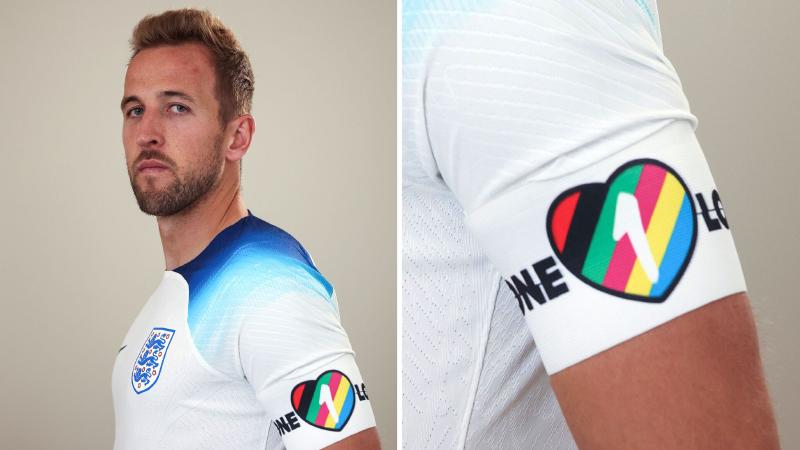World Cup squads including England, the Netherlands and Belgium had previously committed to wearing a “One Love” armband in Qatar as a way to show their support to LGBT communities and denounce the host nation’s oppressive attitude towards them. Mere hours before the kick off to the England – Iran game however the news dropped that no country would be seen wearing these armbands. European countries had succumbed to the pressure from FIFA-backed Qatar. The threat that caused this U-Turn? The harrowing possibility of receiving yellow cards.
Some saw a missed opportunity and a humiliation but there was a more somber conclusion to take away from this capitulation: a terrible sign of moral and intellectual weakness from the West.
When Harry Kane led the England team to face Iran in Doha, the band on his arm was not rainbow-colored but black and bore the tame words “no discrimination”. Next to Kane and his teammates, the Iranian players defiantly remained silent as their country’s anthem resounded in the stadium. The Iran team had previously made it clear that it was supporting the ongoing protests in their country, risking much more than sporting sanctions.
Before the referee whistled the start of the game, the English players took the knee, a sight Premier League fans will have been accustomed to seeing. The symbolic act had become a regular pre-match ritual in the aftermath of George Floyd’s murder in the US to denounce racism. This time, viewers were to understand that it was a show of defiance against all discrimination. An amalgamation of causes that – considering the circumstances – was just like Kane’s armband: washed out, void of color, void of meaning.
I have never been a fan of the importance given to symbolic gestures, slogans or armbands in defending critical causes. When they are not cynically co-opted by companies for financial gain, they too often become counter-productive. Symbols can be powerful, as the Iranian players showed, but only if they are backed by a clear messaging and moral backbone. By failing to commit to the “One Love” armband, European football organizations showed they lacked both and reduced the cause they defended to being worth less than a yellow card.
These types of performative antics are more and more commonly used in the western world as shortcuts: boxes to check to join the ranks of the virtuous. If the teams were not ready to commit to their own stance, they should have released a clear statement backed by concrete actions. This was the direction Hugo Lloris and the French national team chose to take as they decided not to wear an armband instead pledging to support human rights NGOs.
The moral failure displayed by European countries will have hurtful ramifications as the 2022 World Cup is already a turning out to be a clash of civilizations as much as a footballing competition. While we are reminded that the rights of homosexuals or women are far from being universally upheld, human rights and values observably improving human wellbeing are universal…as long as there is someone to defend them.

